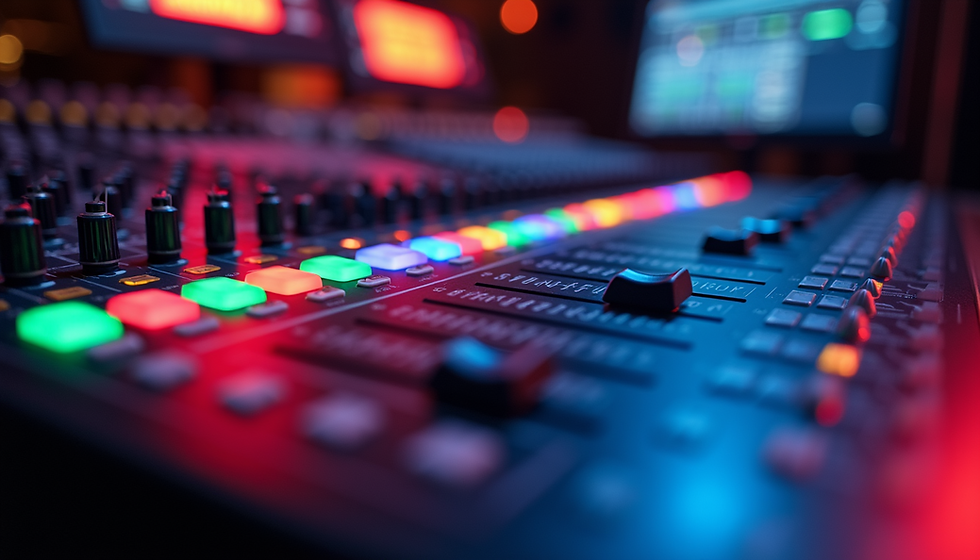How AI Is Changing Music Production — And What That Means for Artists
- STUDIO814
- May 9, 2025
- 3 min read

What used to take a full studio, a budget, and a team of engineers can now happen on a laptop with a few plugins and a working internet connection. AI isn’t coming for music production — it’s already embedded in it. From beat-making to mastering, from stem separation to full vocal synthesis, it’s reshaping how music gets made and who gets to make it.
Right now, tools like Boomy, Soundraw, and AIVA are helping producers generate entire arrangements in minutes. AI-powered services like LALAL.AI make isolating vocals or drums from any song quick and clean. LANDR and other mastering tools let independent artists polish their tracks without ever booking a session. It’s not a gimmick — it’s becoming the workflow.
Some use AI for inspiration: melody generators, chord progressions, starter loops. Others go further, creating entire songs with AI vocals, or collaborating with AI-generated versions of themselves. Grimes has already open-sourced her voice model so others can legally release music using her AI twin. Holly Herndon built an AI version of herself — not to replace her, but to explore how identity translates in a digital space. Of course, not everyone is hyped about it. There are real concerns. Are we losing the soul of the music? Does it all start to sound the same? What happens when creativity is driven more by convenience than vision? And who owns what when a track is built by a machine trained on thousands of other people’s ideas?
Those are valid questions. But there’s a bigger one that cuts through all of it: What exactly are we asking artists to do — and how do we expect them to afford it? Because for most artists, the idea of “real music” being sacred and hand-made is nice, but also kind of disconnected from reality. Releasing a song costs money. Time. Gear. Talent. Usually more than one person. And most songs don’t make that back. So when AI tools start offering high-quality vocals, fast arrangements, and affordable mixing? It’s not about replacing artistry. It’s about survival.
Why pay a vocalist when you can generate one in whatever voice you want? Why spend three days building drums when a model can hand you 20 solid options in 30 seconds? These aren’t lazy shortcuts. They’re the only path for a lot of creators who are broke, exhausted, and trying to keep up with an industry that demands constant output for very little return.
And the listeners? Most don’t care how it was made. They care how it feels.
If a song connects, it connects. Whether it came from a bedroom, a studio, or a line of code — that’s not what most fans are asking. Art is still art if it moves someone. AI doesn’t kill that. It just changes how we get there.
Yes, there will be more noise. More generic stuff. That’s what happens anytime the tools get easier. But that doesn’t kill originality. It just raises the bar. Taste, story, and identity matter more now than ever. When anyone can make a song, the ones that rise will be the ones with a reason to exist.
So no, AI isn’t replacing artists. It’s forcing them to evolve — or at least reconsider what tools are fair game. Music isn’t about purity. It’s about connection. And if AI helps more people create and share something that hits — that’s not a threat. That’s the future.





Comments